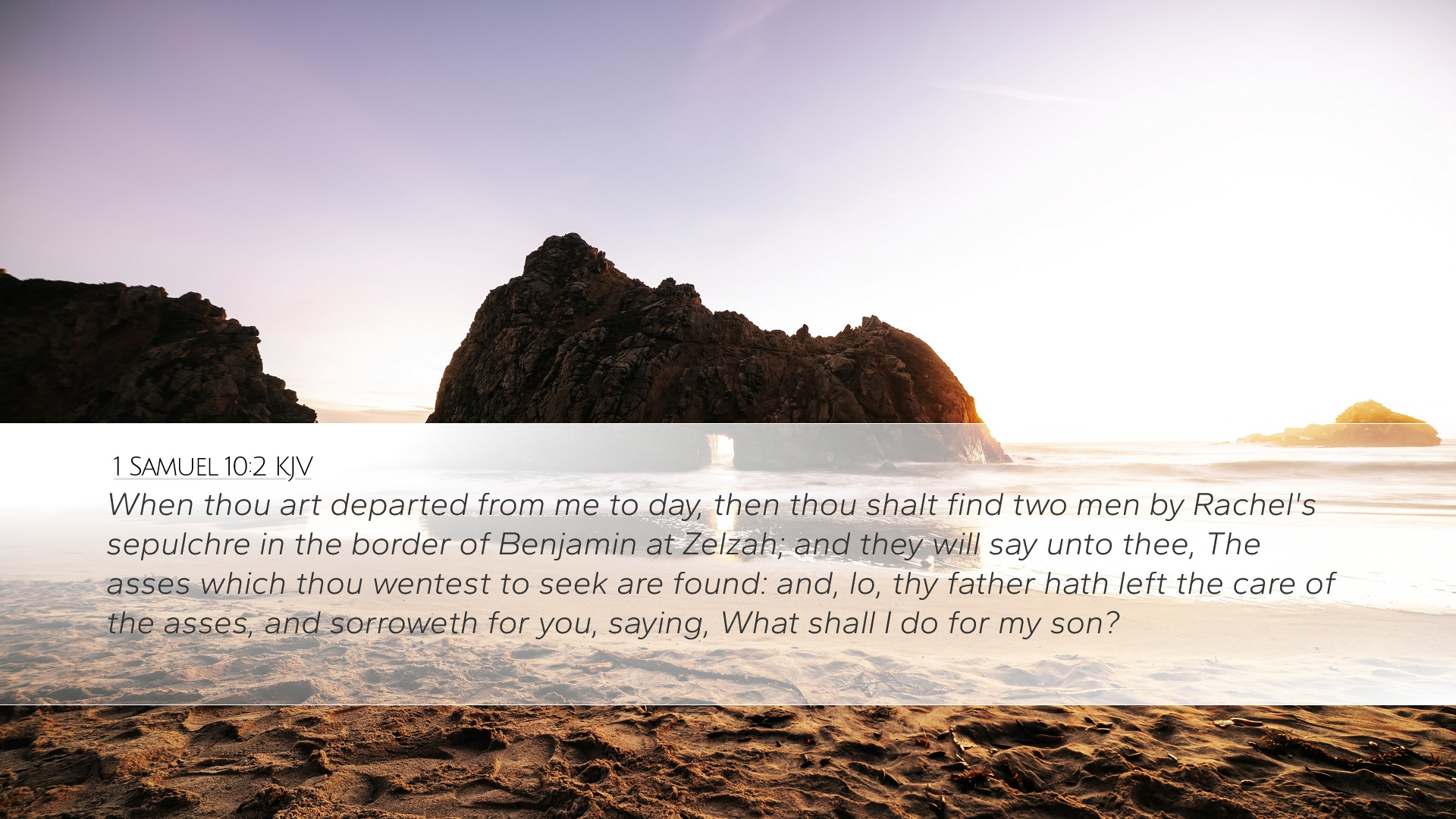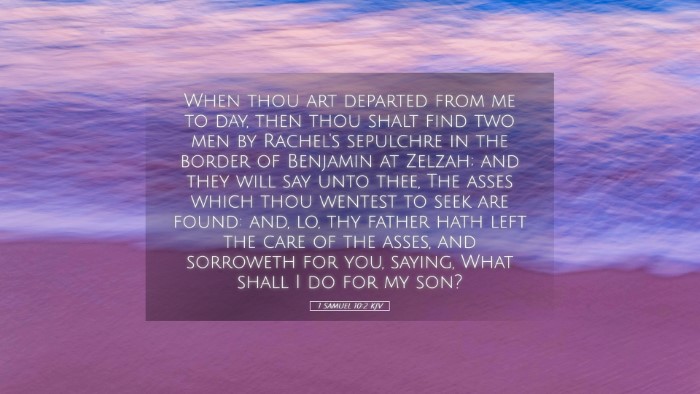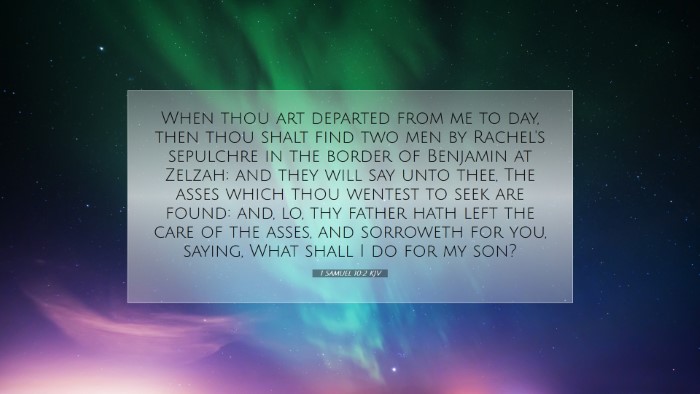Commentary on 1 Samuel 10:2
1 Samuel 10:2 states:
"When you depart from me today, you will find two men by Rachel’s tomb in the territory of Benjamin at Zelzah; and they will say to you, ‘The donkeys which you went to look for have been found. And now your father has ceased caring about the donkeys and is worried about you, saying, “What shall I do about my son?”’"
This verse is pivotal as it transitions the narrative from Saul's private anointing to the public recognition of his kingship. Below is a synthesis of insights from renowned public domain commentaries by Matthew Henry, Albert Barnes, and Adam Clarke.
Contextual Background
This passage occurs in the context of Saul’s appointment as the first king of Israel. Prior to this, the Israelites had clamored for a king to be like other nations. God, through the prophet Samuel, chose Saul, highlighting the divine intervention in Israel's leadership.
Verse Analysis
Divine Confirmation
Matthew Henry observes that the encounters which Saul experiences signify a divine confirmation of his kingship. The two men by Rachel’s tomb act as messengers, delivering a specific report about the lost donkeys, which symbolically reinforces Saul’s new role and responsibilities.
Fulfillment of Prophecy
Albert Barnes emphasizes the prophetic nature of this incident. Saul’s meeting with the two men is not coincidental; it serves as a sign from God that his leadership is ordained and supported by divine providence. Barnes notes that such specific predictions illustrate God's control over events and His intimate knowledge of human affairs.
Symbolism of Rachel’s Tomb
Adam Clarke highlights the significance of Rachel’s tomb as a symbol of the lineage of Israel. Rachel being the beloved wife of Jacob and the mother of Joseph and Benjamin carries weight in the annals of Israel’s history. The tomb serves as a poignant reminder of the nation’s heritage and the unfolding of God’s plan through Saul, a Benjaminite.
The Nature of Saul's Call
This passage speaks to the nature of Saul's calling. Unlike the kings of other nations, Saul’s leadership is marked by a divine appointment, and his journey begins with a significant encounter that provides not only reassurance but also direction.
Saul's Character
Both Henry and Barnes comment on Saul’s initial reluctance and humility. It reflects his initial character, which is essential for effective leadership.
- Leadership through Service: This humble beginning emphasizes that true leadership involves servanthood, an ethos that is essential for pastoral care and governance.
- God’s Sovereignty: The journey of Saul illustrates the sovereign plans God has for individuals, regardless of their current state or confidence.
Theological Implications
This verse reveals multiple layers of theological significance:
- Human Responsibility: Saul’s immediate task upon leaving Samuel encapsulates God’s invitation for human participation in His divine plans.
- Assurance of God's Presence: Just as God provided confirmation to Saul, believers can find assurance in the guiding hand of God in their lives.
- God’s Communication: The manner in which God communicates His will—through people and circumstances—reminds the faithful to remain attuned to divine signs in their journey.
Reflective Application
The message within 1 Samuel 10:2 is not merely historical; it has concrete implications for modern readers, especially pastors and theologians:
- Leading with Integrity: Saul's transition to kingship serves as a reminder of the integrity required in leadership roles, encouraging leaders to be grounded in humility.
- Recognition of God’s Guidance: Understand the importance of seeking God’s guidance in decision-making and being sensitive to His lead through various circumstances.
- Community Awareness: The involvement of others, like the two men, highlights the essence of community. Effective ministry involves working with and being aware of communal needs.
Conclusion
1 Samuel 10:2 offers rich foundational insights into the character of Saul and the nature of divine calling. It reminds pastors, students, theologians, and scholars that God orchestrates events leading to the fulfillment of His purposes, often through ordinary occurrences and individuals. This verse encourages a prayerful awareness of God’s direction in our lives and roles, urging us to embrace humility and service as we navigate our spiritual journeys.


